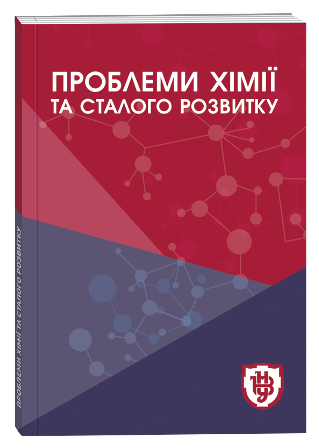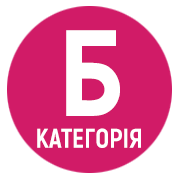TO THE ISSUE OF THE IMPROVEMENT OF THE TRAINING SYSTEM OF ECOLOGISTS AND SUSTAINABLE DEVELOPMENT PROFESSIONALS
DOI:
https://doi.org/10.32782/pcsd-2025-3-14Keywords:
sustainable development, ESG (Environmental, Social, and Governance), environmental educationAbstract
Research Aim: to identify discrepancies between the competencies possessed by environmental science graduates and the needs of stakeholders. Based on the results of the GAP analysis, develop recommendations for improving the training system for students in environmental science specialties.Methodology. The study employed analytical methods (structuring, deduction, GAP analysis), as well as general and predictive methods.Scientific Novelty. The GAP analysis was conducted to identify gaps between the competencies of environmental science graduates and the requirements of the labor market. Discrepancies were revealed between employer needs and graduate competencies, with key issues identified as: untimely updating of educational components; lack of knowledge about environmental trends among both students and educators; insufficient mastery of international professional terminology; inadequate knowledge of environmental management; and a narrow range of competencies related to sustainable development and ESG (Environmental, Social, and Governance) that is insufficient for current demands.Eight recommendations were developed to improve the training system for higher education students in environmental science specialties across three directions: improving higher education management systems, developing educators’ competencies, and enhancing students’ competencies.Conclusions. Implementing the provided recommendations to improve the training system for higher education students in environmental specialties will increase graduates’ competitiveness in the labor market and reduce the adaptation period at their first job «in the profession». The use of informal education tools will help bridge the existing gap between student competencies and the current needs of businesses in the shortest possible time.
References
Капінос Г., Ларіонова К. Проблема управління сталим розвитком в умовах війни. Modeling the development of the economic systems. 2023. № 1. С. 93–103. https://doi.org/10.31891/mdes/2023-7-13.
Дослідження: результати «Необхідні зміни освітнього інтерфейсу між академічним середовищем і реальним сектором економіки в Україні». Professional Association of Environmentalists of the World (PAEW). 2024. URL: https://ukraine-oss.com/doslidzhennya-rezultaty-neobhidni-zminy-osvitnogo-interfejsu-mizh-akademichnym-seredovyshhem-i-realnym-sektorom-ekonomiky-v-ukrayini/ (дата звернення 22.08.2025).
Звіт проєкту «PAEW: Зелені управлінці: кадри для зеленої відбудови України». Professional Association of Environmentalists of the World (PAEW). 2024. URL: https://ukraine-oss.com/wp-content/uploads/2024/06/ doslidzhennya-kadry-full-1.pdf (дата звернення 22.08.2025).
Саєнко Т. Екологічна освіта – основа екобезпеки та сталого розвитку. Новітня наука та вища освіта. 2020. № 2. С. 30–36. https://doi.org/10.31392/NPU-VOV.2020.2(77).06.
Освітня мережа сприяння сталому місцевому розвитку: унікальний досвід дієвого мережевого партнерства ВНЗ України / за заг. ред.: В. І. Усик, Г. І. Мелеганич. Кам’янець-Подільський : Аксіома, 2018. 76 с.
Rogoff B., Callanan M., Gutiérrez K.D., Erickson F. The Organization of Informal Learning. Review of Research in Education. 2016. Vol. 40. № 1. Р. 356–401. https://doi.org/10.3102/0091732X16680994.
Лакас В.В. Сталий розвиток в сучасних умовах: сутнісно-змістовна характеристика та теоретико-методоло- гічні засади. Агросвіт. 2024. № 16. С. 184–190. https://doi.org/10.32702/2306-6792.2024.16.184.
Liuta Oksana, Tymchuk Ivan, Malovanyy Myroslav, Turkadze Tsitsino. Education in the field of climate change adaptation as an integral part of achieving sustainable development goals. Environmental Problems. 2024. Vol. 9. № 1. P. 21–27. https://doi.org/10.23939/ep2024.01.021.
Territory of Innovations: Best Practices for Sustainable Development at the Local Level. Part 1 : digest of analytical stage of international scientific and educational project [Text] : collective monograph / sc. ed.: V. Omelianenko, O. Prokopenko, T. Tirto. Tallinn : Teadmus, 2022. 227 p.
University of Gothenburg. Education for Sustainable Development, Master’s Programme.URL: https://www.gu.se/en/study-gothenburg/education-for-sustainable-development-masters-programme-s2esd (дата звернення 20.08.2025).
University of Reading. Education for Sustainable Development. URL: https://sites.reading.ac.uk/sustainability/get-involved/esd/ (дата звернення 19.08.2025).
University of Leicester. Education for sustainable development. URL: https://le.ac.uk/sustainability/education-for-sustainable-development (дата звернення 19.08.2025).
L-Università ta' Malta. Master in Education for Sustainable Development. URL: https://www.um.edu.mt/courses/overview/pmesdpet2-2024-5-o/ (дата звернення 19.08.2025).
Bogoliubov V.M., Nagorniuk O.M., Sobczyk W. Providing environmental training in the context of Ukraine’s transition to sustainable development. Annals of Agrarian Science. 2016. Vol 14. № 4. P. 292–294. https://doi.org/10.1016/j.aasci.2016.09.003.
European Commission Report 2024: Communication from the Commission to the European Parliament, the Council, the European Economic and Social Committee and the Committee of Regions. 2024. Brussels. 105 p.








